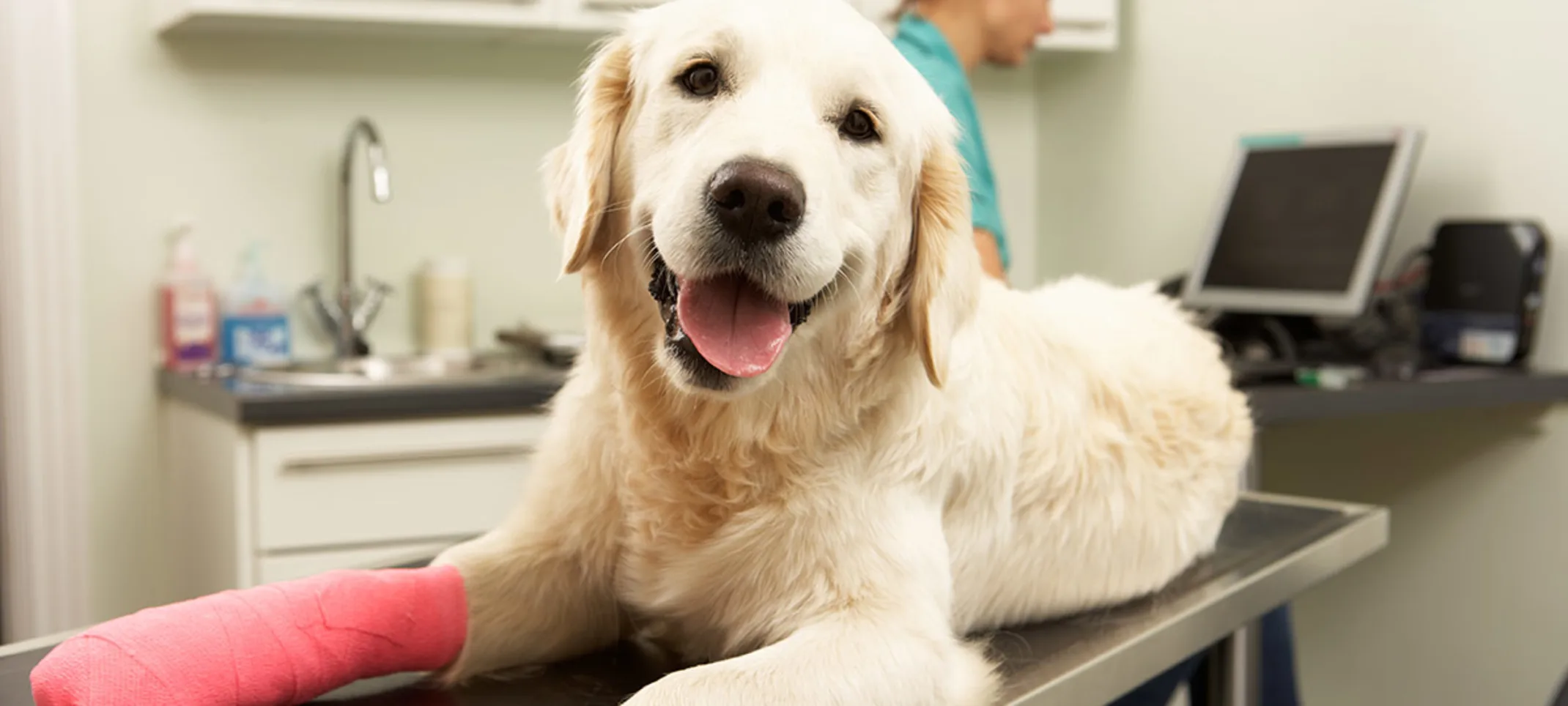Animal Hospital of Worthington
Orthopedic Surgery
Orthopedic surgery can help pets who suffer from joint problems, torn ligaments, broken bones, and even help correct congenital problems.

Overview
Orthopedic surgery treats bones, joints, ligaments, and muscles—areas in which your pet may feel pain in from a variety of conditions. If veterinary orthopedic surgery is recommended for your pet, we will do everything possible to keep them safe and comfortable before, during, and after the surgery.
Why would my pet need orthopedic surgery?
Orthopedic surgery can help animals who suffer from joint problems, torn ligaments, broken bones, and can even help correct congenital problems. Most orthopedic surgery is focused around the cranial cruciate ligament (CCL), sometimes referred to as the Anterior Cruciate Ligament (ACL).
When should I seek orthopedic care for my pet?
Pay attention to the way your pet is moving around, any unusual changes may mean they have an orthopedic condition.
Typical symptoms of an orthopedic disorder include difficulty getting up, favoring a leg intermittently when walking, limping - swelling in the leg, stiffness or decreased activity level. If you notice any of these problems, you should take your pet to our facility for an examination.
How are typical orthopedic injuries treated?
Tibial Plateau Leveling Osteotomy (TPLO)
TPLO surgery, or tibial plateau leveling osteotomy, is a procedure that is done to repair a torn cranial cruciate ligament. The cruciate ligament is responsible for stabilizing the knee, and there is force applied against this ligament whenever your dog is standing. When the cruciate ligament becomes torn, the femur will rub against the tibia when the dog puts weight on it, causing significant pain and in most cases, this will cause the dog to not want to put weight on that leg.
A TPLO procedure is used to repair the torn ligament by changing the dynamic of the animal’s knee. The ligament becomes irrelevant to the stability of the knee by counteracting the force that caused the ligament to tear. This reconstructive surgery cuts the tibia bone, rotates it, and it becomes held in place with metal plates. This is an extremely effective long-term solution for the injury and is a highly recommended and commonly used procedure for a torn cruciate ligament, especially in larger dogs.
Lateral Suture Surgery
A lateral suture surgery is a surgical technique that can be used to repair a torn cruciate ligament. During a lateral suture surgery, a very strong suture material is used to stabilize the cruciate ligament and limits the side-to-side motion that occurs when it is torn. This also helps to relieve pain and maintain normal range of motion in the knee. A lateral suture procedure is less advanced than a TPLO procedure and is only recommended on small breed dogs (typically under 35 lbs) as it is not as successful in larger breed dogs that put more force on their knee.
Luxating Patella Surgery
A patellar luxation is a dislocated knee cap and is most commonly seen in small breed dogs. Most patellar luxations occur when the patella displaces from its normal position to the inside of the knee. When the knee cap is in a luxated position, it also puts the cruciate ligament at risk for injury. Pets with this condition may have an intermittent non-weight bearing lameness and you may even hear a popping noise in their knee. Realignment surgery is most often recommended for patellar luxations that cause clinical lameness. Bring your pet in so we can determine the best way to treat the luxation.
Fracture Repairs
A fracture is a break in the bone or cartilage. Depending on the severity and location, a fracture can be repaired from simple external splinting to more advanced internal plating. Fractures are typically caused by trauma, a disease or tumor in the bone, or stress applied to a certain bone.
Animal Hospital of Worthington does not currently offer surgical fracture repairs or internal fracture plating. If needed, your pet will be referred to either MedVet or Ohio State University, where you will receive excellent care from a boarded veterinary surgeon.
